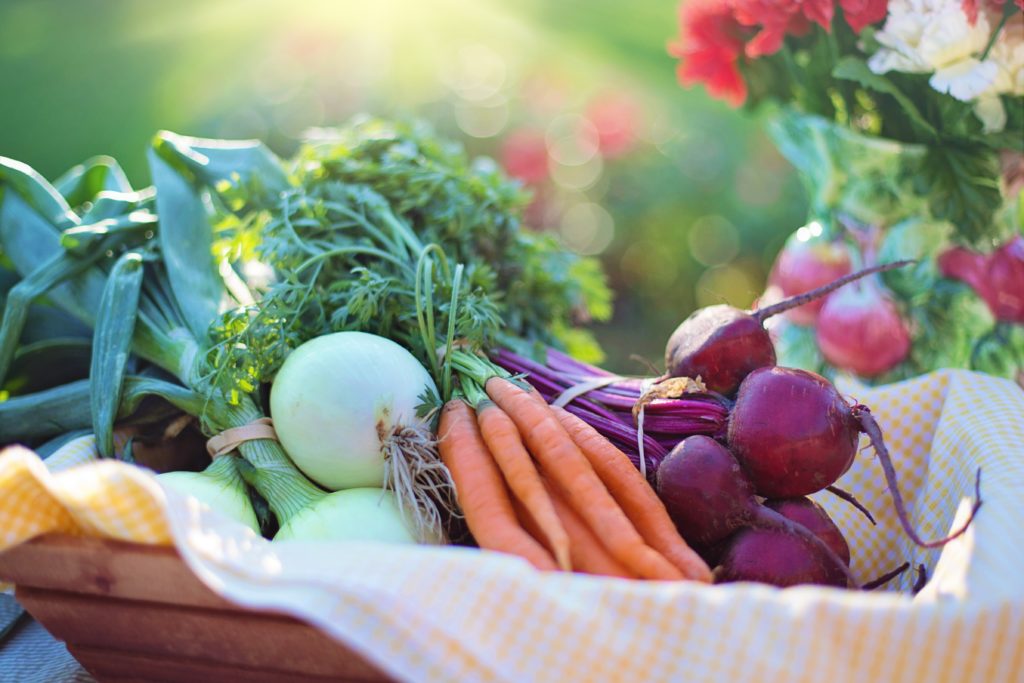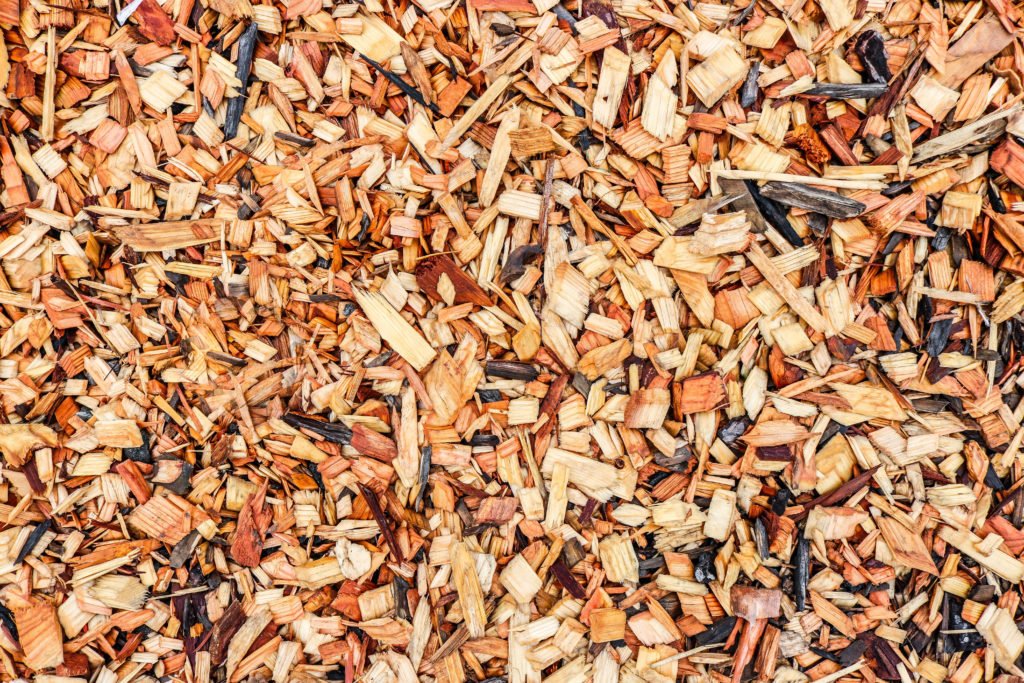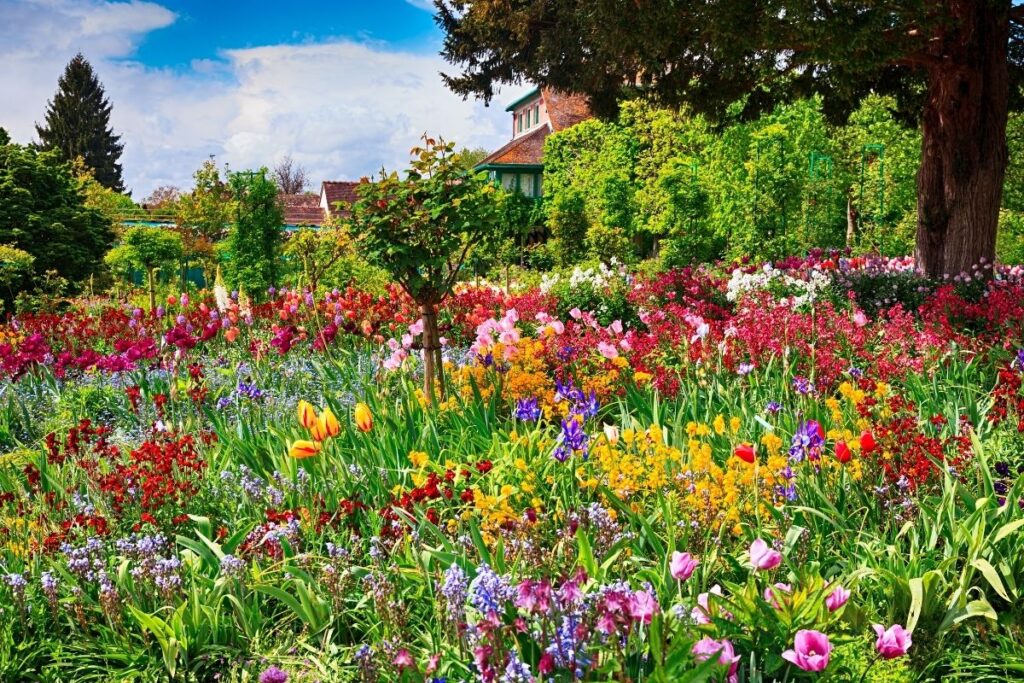You enjoy fresh flowers and vegetables, fruits, and herbs and spices, and you’ve often thought about growing a garden. The problem is you live in an apartment.
Not to worry. There are plenty of options for starting a garden that will be successful and bountiful. From container gardening to window boxes and spaces in between, there are opportunities abound to show off your green thumb to grow your favorite plants throughout the year.
Start By Finding the Space
Finding a suitable space is the first step in apartment gardening. While residents of apartments, condos, and townhomes may think a garden isn’t possible, that isn’t the case. There are multiple spaces and places that provide the right conditions to sow and grow a garden. Some of the most common areas include windowsills, patios, and balconies.
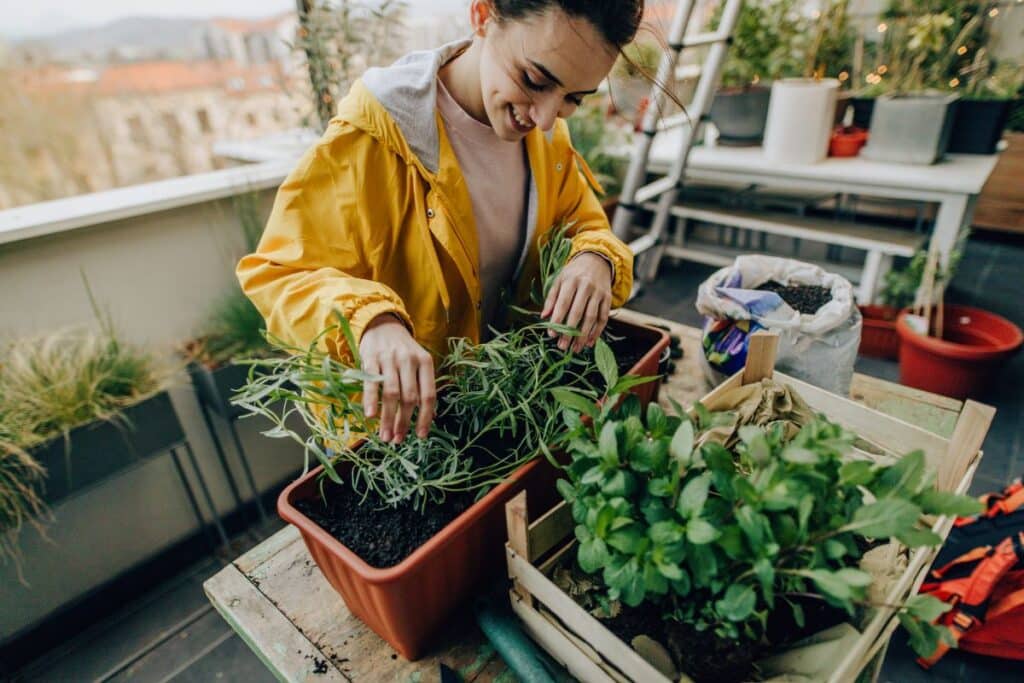
Other areas to consider are wall spaces near a window that will provide adequate filtered sunlight. In these areas, hanging vertical wall planters or installing hooks in the ceiling for hanging planters is another way of utilizing space. The location of where you plan to grow the plant can help narrow down the choices of which type of plant is most suitable for individual space conditions based on what each plant needs to thrive, such as direct or indirect sunlight.
Choose the Right Plants
From flowers to fruit and greens to indoor-grown herbs, there are quite a few choices regarding the types of plants you can grow in your apartment. Some plants will do well in small pots that sit on the windowsill or in a windowbox, while others will thrive in larger containers that can be placed inside the apartment or outside on a patio or balcony. Consider some of the following for delectable garden edibles.
- Arugula
- Avocados
- Bell peppers (also cherry and banana peppers)
- Carrots
- Chives
- Herbs (rosemary, ginger, mint, cilantro, chives, thyme)
- Garlic greens
- Green beans
- Green onions
- Lavender
- Lemon tree (dwarf-size)
- Lettuce
- Mushrooms
- Parsley
- Radishes
- Spinach
- Tomatoes
For flower enthusiasts, several varieties do well in an apartment. These include:
- African Violet
- Begonia
- Cactus
- Fiddle Leaf Fig
- Marigold
- Peace Lily
- Pothos
- Snake Plant
- Spider Plant
Stay on Top of Plant Care
Staying on top of taking care of the plants makes the difference between a healthy garden that produces and a garden that struggles to survive. Sunlight, water, proper soil, and prevention of parasites, such as aphids, are all part of a plant care regimen. All of these tasks are necessary regularly to ensure productivity.
Watering is the most essential element in plant care. Without it, too much of it can end the plant’s lifecycle. Before you overwater or don’t provide enough, you need to know the requirements for each plant to keep it growing.
Some plants that receive too much water end up with root rot. Plants that don’t receive enough water will shrivel up and die. You can quickly test the soil’s condition by gently sticking your finger into the soil to gauge if it is too wet or too dry. Apply water as needed or drain any excess water if the plant is in a pot with a bottom cup, so the soil doesn’t remain saturated.
Plants need food to grow, which usually comes from quality fertilizer. Like watering, you need to feed based on the type of plant and what it requires. Once this is determined, set up a regular feeding schedule.
Inspect and treat plants for pests, diseases, and signs that they need repotting. Move them away from the healthy plants and treat the problem if found.
For fruit-bearing plants, know when the fruit needs to be harvested and pick the fruit as soon as possible. Don’t leave the fruit to rot on the plant.
Get Creative with Storage
Extra storage space for gardening tools and supplies may be lacking when living in an apartment or condo. If this is the case, getting creative with the space available can provide what you need.
If you aren’t using the windowsills, these can be used for some of the extra pots or containers. If there’s room for a small, slim cabinet, this can hold tools, plant food, and containers. Shelves are always an excellent way to use wall space for storage. Another way to use wall space is to install hooks. Place items (tools, plant food, etc.) in separate bags, then hang the bags from the hooks.
If your apartment has a patio or balcony, place waterproof shelves along the wall from ceiling to floor. This option is also usable inside the apartment in an out-of-the-way location. If shelves aren’t an option, place a waterproof cabinet with multiple drawers or cubby-type holes on the patio or balcony and place the gardening items inside. The gardening tools and accessories will be out of sight but always easily accessible when you need them.
Inside the apartment, if you have any furniture that has hidden compartments, use these to your advantage for storing items until they are needed. There is usually unused wall space in the bedroom, kitchen, and even the bathroom. Install small cabinets in these areas for added storage space.
Start a Community Garden
Whether you’re living in a retirement community or a trendy downtown apartment, community gardens provide an opportunity to meet other gardening enthusiasts, socialize, and share ideas, suggestions, and growing tips with others. Talk to your neighbors and the manager about organizing a meeting, so those interested can get involved. Once it’s decided to have a community garden, the next step is to set up a planning committee to get things organized.
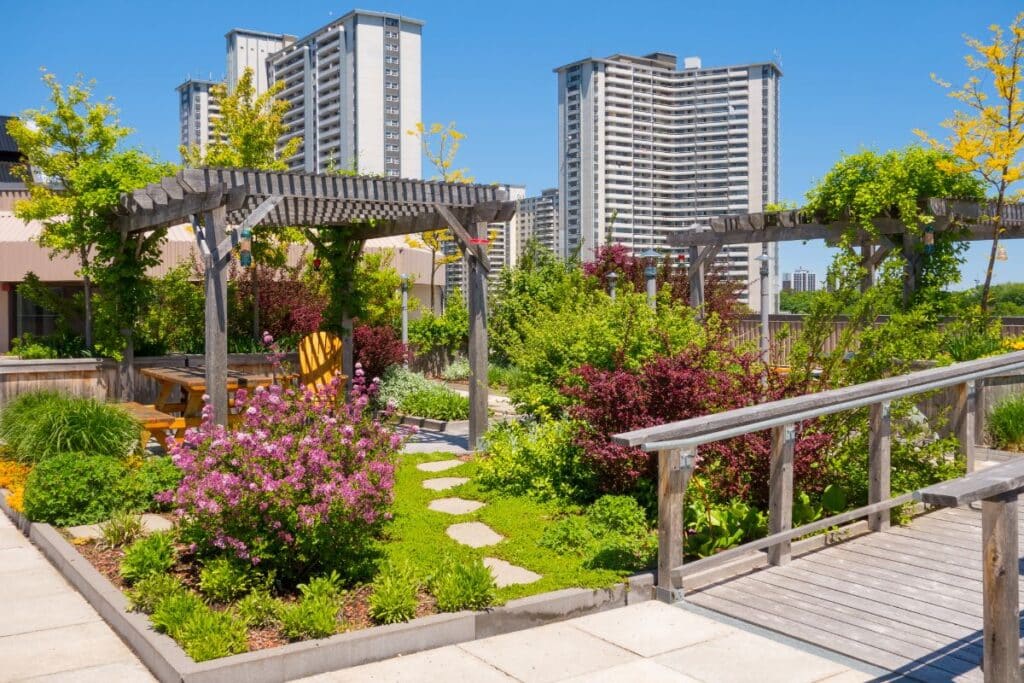
Ask those interested in a community garden if they have any specific resources or horticulture experience on how to start a community garden they can share with the group. Ask the apartment manager if there is any space on the property where a community garden could be created. If there is, check that the area receives enough sunlight to sustain the plants and that there is a water source nearby. If there is no space available at the apartment complex, find a nearby location that would allow a community garden that offers the same sunlight, a water source, and good soil.
Benefits of Apartment Gardening
Gardening is a relaxing pastime that has more than a few benefits. Besides being a great way to unwind, gardening provides fresh flavors for your dining pleasure. If you are also growing plants that bloom, they add freshness to your home’s decor. Planting seeds and watching them grow into beautiful plants is achievable, even when your garden is in an apartment setting.

